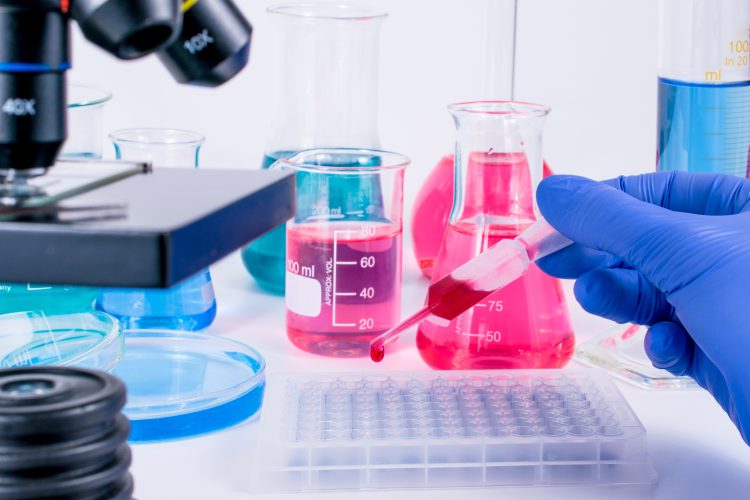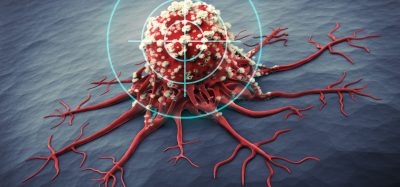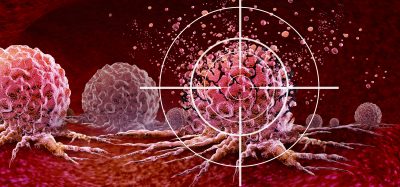Liquid biopsy helps advance oncology drug development
Posted: 18 July 2024 | Dr Chris Haqq (Elicio Therapeutics) | No comments yet
In this exclusive interview with Elicio Therapeutics, we explore the transformative potential of liquid biopsy in oncology drug development, particularly spotlighting its application in Elicio’s AMPLIFY-201 study of ELI-002, a promising therapeutic cancer vaccine candidate.


Why is detecting cancers via liquid biopsy before they become visible on imaging important for drug development, not just diagnostics?
We believe liquid biopsy is very helpful for oncology drug development because the reduction and clearance of circulating DNA occurs quickly before radiographic imaging is available. From our experience, we have found that by using liquid biopsy we were able to more rapidly determine the Phase II dose to optimise the potential antitumour effect in our study. Our recent Nature Medicine publication is a good example of where liquid biopsy data was used alongside T cell responses to make decisions during a dose escalation of a new cancer vaccine candidate, ELI-002 2P1.
What is the role of liquid biopsy in oncology drug development? How has it changed as technologies have evolved for better-detecting tumor markers in the blood?
The sensitivity of liquid biopsy is important in drug development. The initial techniques were able to detect circulating tumour DNA in patients who already had metastatic spread. However, what has really helped the sensitivity is using a tumour-informed approach where mutations found when sequencing the patient’s own tumour are part of the design. Beyond the standard tumour-informed assay, we collaborated with Natera to create a more sensitive tumour-informed test using its Signatera™ molecular residual disease testing technology for research use in our AMPLIFY-201 clinical trial. This helped us to identify as many patients as possible who already had microscopic tumour spread.
How is leveraging liquid biopsy leading to innovative trial designs in oncology and ultimately our ability to develop new drugs in the adjuvant setting?
In early clinical development, we expect new adjuvant cancer trials will incorporate the liquid biopsy approach to confirm the therapeutic effect and determine the optimal dosing for new agents within a few weeks of beginning dosing, eliminating the long wait for radiographic scans.
Reduce preclinical failures with smarter off-target profiling
24 September 2025 | 15:00PM BST | FREE Webinar
Join this webinar to hear from Dr Emilie Desfosses as she shares insights into how in vitro and in silico methods can support more informed, human-relevant safety decisions -especially as ethical and regulatory changes continue to reshape preclinical research.
What you’ll learn:
- Approaches for prioritizing follow-up studies and refining risk mitigation strategies
- How to interpret hit profiles from binding and functional assays
- Strategies for identifying organ systems at risk based on target activity modulation
- How to use visualization tools to assess safety margins and compare compound profiles
Register Now – It’s Free!
In later stage trials, additional clinical trial designs are made possible by liquid biopsy. Since a positive result from liquid biopsy indicates that a patient has a higher risk for a tumour relapse after surgery, trials can be smaller and faster.
How did Elicio use ctDNA detection in the AMPLIFY-201 study of the therapeutic cancer vaccine candidate ELI-002?
In AMPLIFY-201, we used the change from the baseline positive value on either liquid biopsy (Signatera) or serum tumour biomarkers to determine the preliminary antitumour effect in patients. In our study, 84 percent (21 of the 25 patients) had reduced tumour biomarkers and 24 percent (6 of the 25 patients) had complete ctDNA clearance. This was very exciting to see early on, and as the study proceeded, we learned that the same proportion, 84 percent of the treated patients, also made T cells specific for mutated KRAS. We saw a significant correlation of the mechanism of action of T cell induction with the tumour reductions and clearances. Over time, we also saw the strength of the T cell response, the liquid biopsy and tumour biomarkers, and radiographic progressions all correlate. This was a great way for us to make a preliminary assessment for ELI-002.
What are the next steps for the ELI-002 program and how will ctDNA detection continue to be used throughout its drug development?
We are now enrolling a randomised Phase II study evaluating the seven-peptide formulation of our vaccine candidate in adjuvant pancreatic cancer patients (NCT05726864). This trial is open to patients with and without a positive result on liquid biopsy. For the group with positive baseline tests, we are looking forward to building the correlation of liquid biopsy reduction and clearance with the disease-free survival times.
Reference
1 Pant, S., Wainberg, Z.A., Weekes, C.D. et al. Lymph-node-targeted, mKRAS-specific amphiphile vaccine in pancreatic and colorectal cancer: the phase 1 AMPLIFY-201 trial. Nat Med 30, 531–542 (2024).
About the author


Dr Haqq is an oncologist with more than two decades of experience in drug development working across cell therapy, small molecule and biologics in large and small biotech settings. Dr Haqq holds multiple patents and publications. He has served as the medical monitor for numerous oncology clinical trials and has worked closely with the US Food and Drug Administration and other global regulatory agencies to advance therapies through the clinic to marketing approval.
Related topics
Cancer research, Clinical Trials, Drug Development, Oncology, Vaccine development
Related conditions
Cancer, Cancer Research
Related organisations
Elicio Therapeutics
Related people
Dr Chris Haqq (Elicio Therapeutics)








